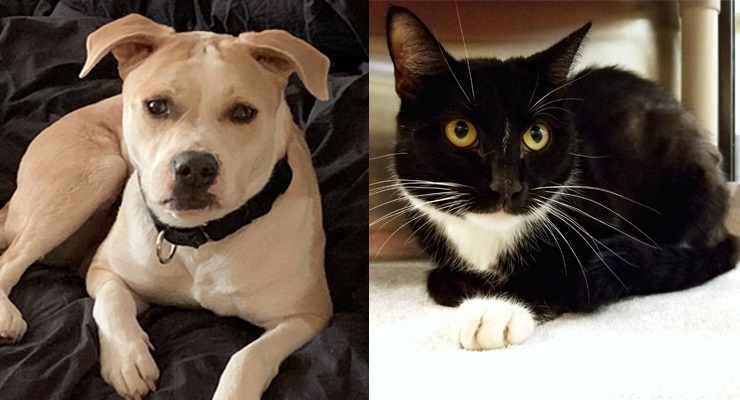Keep Your Pet Safe With These Thanksgiving Tips
Thursday, November 28, 2019
[Updated] The American Veterinary Medicine Association is reminding families to keep their pets healthy and safe during the Thanksgiving holiday, and to be aware of the hazards their pets are exposed to when there’s plenty of holiday food lying around.
If overindulging in the family feast can be unhealthy for humans, it can be even worse for pets, the AVMA warns. Pets should not be fed fatty foods, which for them are hard to digest, and poultry bones, which can damage their digestive tract. Holiday sweets may also contain ingredients that may be harmless to humans but poisonous to pets.
The artificial sweetener called xylitol, commonly used in gum and sugar-free baked goods, can be deadly if consumed by dogs or cats, the AVMA says.
Onions and garlic, mushrooms, raisins, and grapes may actually be dangerous to pets as well.
AVMA especially warns against feeding your pets turkey or turkey skin. It can cause a life-threatening condition in pets known as pancreatitis.
Yeast dough can also cause problems for pets and may cause painful gas and potentially dangerous bloating; if you have leftover dough, make sure to put it away in the trash where your pets can’t find it.
“If you want to share a Thanksgiving treat with your pet, make or buy a treat that is made just for them,” AVMA said in an advisory for taking care of pets during the holiday.
The association also warns people to be careful with decorative plants, especially some those that can be toxic to pets. Among these are amaryllis, Baby’s Breath, Sweet William, some ferns, and hydrangeas.
Look out for signs of pet distress including sudden changes in behavior, depression, pain, vomiting, or diarrhea.
Visitors can also upset your pets. If you’re having more people than usual in your home for the holiday, it is best to put your pet in another room or crate, to reduce the emotional stress while at the same time protecting your guests from possible injury.
“If your pet is particularly upset by houseguests, talk to your veterinarian about possible solutions to this common problem,” says the AVMA advisory. “If you have exotic pets, remember that some people are uncomfortable around them and that the festivities may more easily stress these pets. Keep exotic pets safely away from the hubbub of the holiday.”
It also pays to be careful about exits in your house, especially when people are entering and leaving. In some cases, pets could just run out through an open door and then become lost. Making sure your pet has an identification tag containing current registered information which will surely make it easier for your them to be returned to you.
For more tips about taking care of your pets during the holiday, visit the AVMA website, www.avma.org, ASPCA’s site, www.aspca.org, or other pet-friendly resource sites. Always make sure to keep a number for your local veterinarian for use during emergencies.
The American Society for the Prevention of Cruelty to Animals (ASPCA) also has a list of plants that are toxic to both dogs and cats. It is accessible online through www.aspca.org/pet-care/animal-poison-control/toxic-and-non-toxic-plants/pet-care/animal-poison-control/toxic-and-non-toxic-plants. If you think your pets have been exposed to some food or plant it shouldn’t have eaten, it is best to call the ASPCA Poison Control hotline: (888) 426-4435 or your local veterinarian.



